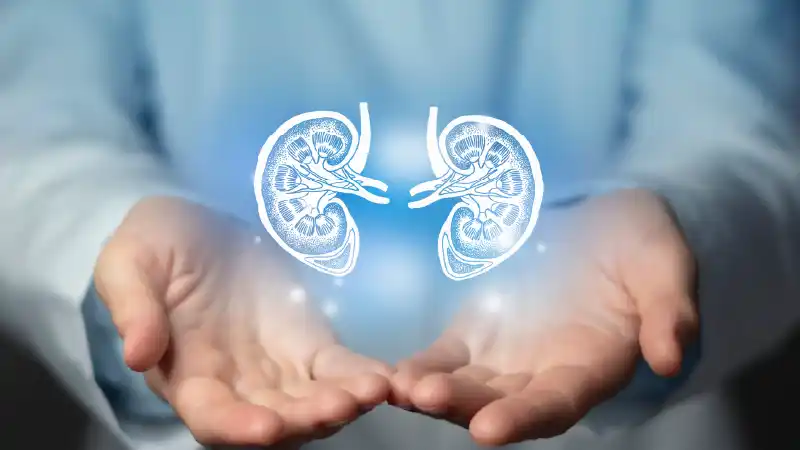Causes, Symptoms and Treatment of Solitary Kidney
Solitary Or Single Functioning Kidney - What You Need To Know
The solitary kidney is a condition in which a person has a single kidney instead of two kidneys. A person may be born with a single kidney (renal agenesis), have two kidneys, however, only one may be functional (renal dysplasia ) or lose one kidney to a disease, like kidney cancer. Individuals who donate one of their kidneys have a solitary kidney.
The kidney performs the following functions:
- Assist in maintaining water balance and blood pressure
- Filter waste from the blood
- Manage the correct balance of minerals in the blood.
Many people with single kidneys lead normal, healthy lives. Some people experience complications such as high blood pressure and reduced kidney function.
Also Read: Disease X Symptoms
Causes
Renal agenesis: when a person is born with a single kidney or a solitary kidney.
Kidney dysplasia: when a person is born with two kidneys; however, only one of them is functioning well.
Transplant donor: A person may have assisted someone in need by donating one kidney to a person who wants a kidney transplant. A person with kidney failure may get a kidney transplant because their kidneys are not able to function well enough to keep them alive.
Surgery: An individual may have had one kidney removed during an operation in order to treat a disease such as cancer or an injury.
Symptoms
- Increased protein in the urine, or proteinuria
- High blood pressure
- Reduced filtering capacity calculated by glomerular filtration rate (GFR): A lower GFR, measured by a blood test, can occur in people with a single kidney. As long as these conditions are under control, they will most likely not seriously impact overall health. However, regular monitoring is required.
Also Read: Brain Haemorrhage Symptoms
Complications
Generally, most people with one kidney or a healthy kidney have some problems. However, few people with renal agenesis or kidney dysplasia may have a certain loss in kidney function later in life. This normally takes 25 years or more to happen.
The loss in kidney function is typically mild, and the life span is not affected. Most people with single kidneys live healthy, normal lives with few problems. To put in other words, a single kidney can function as well as two. There is a possibility of having high blood pressure.
Diagnosis
Few people discover they have a single kidney by chance.
An ultrasound or X-ray can reveal a solitary kidney.
Regular urine and blood tests are required to monitor possible strains on the single kidney.
Medication
People with a single kidney who do not have kidney disease or any other condition will not require medicines. A person with a transplanted kidney will be required to take anti-rejection medicines (immunosuppressants), which reduces the body’s ability to reject a transplanted organ.
If a person gets kidney disease, one or more medicines can be used to assist in slowing down the kidney disease. Based on the type of kidney disease, these medicines can include an ACE inhibitor/ARB, a diuretic (water pill), an SGLT2 inhibitor and/or an MRA.
Also Read: Shivering Symptoms
Nutrition
Most people with one healthy kidney do not need to follow a particular diet. Nevertheless, nutrition and eating health are still crucial parts of your health. Consuming healthy food normally includes having more vegetables and fruits and eating foods that are less processed and as close to fresh as possible.
If you have a kidney transplant because of kidney disease or kidney failure, you can have some restrictions. You may be required to change what you eat if you have any conditions like diabetes or high blood pressure. If you have questions about your diet, talk to your doctor or a registered dietitian.
Treatment
There are many things you can do to help protect your kidney.
- Exercise regularly
- Follow a well-balanced diet
- Quit or avoid smoking
- Stay hydrated
- Reduce salt intake
- Monitor cholesterol levels
- Manage blood pressure
- Manage blood sugar levels
- Get an annual flu shot
- Get an annual physical and kidney tests
- Know your family medical history
- Manage weight
- Discuss with your obstetrician if you become pregnant or, ideally, before you plan to become pregnant
- Avoid over-the-counter nonsteroid anti-inflammatory drugs.
HELP CENTRE
Confused? We’ve got the answers
We’re Star Health. We offer the coverage that’s designed to help keep you healthy. It's the care that comes to you, and stays with you.
Related Health Info Links
Explore Relevant Symptoms and Conditions
Health Insurance Coverage for pre-existing medical conditions is subject to underwriting review and may involve additional requirements, loadings, or exclusions. Please disclose your medical history in the proposal form for a personalised assessment.
Information on this Health Information page is for educational purposes and not medical advice. Consult a healthcare professional for any health issues and rely on their guidance for diagnosis and treatment. T & C apply. For further detailed information or inquiries, feel free to reach out via email at marketing.d2c@starhealth.in
